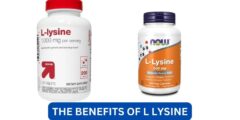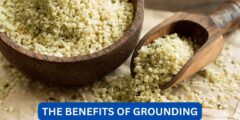When it comes to organ meats, liver often gets a bad rap. Many people are turned off by its strong flavor and texture, and some even consider it to be a “gross” or “unappetizing” food. However, what many people don’t realize is that liver is actually one of the most nutrient-dense foods on the planet. In fact, it has been referred to as the “original superfood” due to its impressive nutritional profile. In this article, we will explore the benefits of eating liver and why it should be a regular part of your diet.
Contents
The Nutritional Benefits of Eating Liver
Liver is packed with essential nutrients that are vital for our overall health and well-being. Here are some of the key nutrients found in liver:
- Protein: Liver is an excellent source of high-quality protein, containing all nine essential amino acids that our bodies need for various functions such as building and repairing tissues, producing hormones, and supporting the immune system.
- Vitamins: Liver is a rich source of vitamins A, B12, and B9 (folate). Vitamin A is essential for maintaining healthy vision, skin, and immune function. Vitamin B12 is crucial for red blood cell production and nerve function. Folate is necessary for cell growth and development, making it especially important for pregnant women.
- Minerals: Liver is a good source of iron, zinc, and copper. Iron is essential for transporting oxygen throughout the body and preventing anemia. Zinc is important for immune function, wound healing, and DNA synthesis. Copper is necessary for the production of red blood cells and maintaining healthy bones and nerves.
- Other Nutrients: Liver also contains other important nutrients such as choline, which is essential for brain and liver function, and CoQ10, which is a powerful antioxidant that helps protect cells from damage.
The Health Benefits of Eating Liver
Now that we know about the impressive nutritional profile of liver, let’s explore the specific health benefits that come with incorporating it into our diets.
Read:What are the benefits of whey protein?1. Boosts Energy and Fights Fatigue
As mentioned earlier, liver is a rich source of iron, which is essential for producing hemoglobin, a protein in red blood cells that carries oxygen throughout the body. Iron deficiency can lead to anemia, which can cause fatigue, weakness, and difficulty concentrating. By including liver in your diet, you can increase your iron intake and boost your energy levels.
2. Supports Brain Health
The high levels of choline found in liver make it an excellent food for brain health. Choline is a precursor to acetylcholine, a neurotransmitter that plays a crucial role in memory, mood, and muscle control. Studies have shown that choline deficiency can lead to cognitive decline and neurological disorders such as Alzheimer’s disease. By consuming liver, you can ensure that your brain is getting the necessary nutrients to function optimally.
3. Improves Immune Function
The combination of vitamins A, B12, and zinc found in liver makes it a powerful food for boosting immune function. Vitamin A is essential for maintaining the integrity of the mucosal lining in our respiratory and digestive tracts, which acts as a barrier against pathogens. Vitamin B12 is necessary for the production of white blood cells, which are responsible for fighting off infections. Zinc is known for its immune-boosting properties and has been shown to reduce the duration and severity of the common cold.
Read:What are the benefits of a steam room?4. Supports Liver Health
It may seem counterintuitive, but consuming liver can actually support the health of your liver. This is because liver is a rich source of vitamin A, which is essential for the regeneration of liver cells. It also contains glutathione, a powerful antioxidant that helps protect the liver from damage caused by toxins and free radicals.
5. Promotes Healthy Skin and Hair
The high levels of vitamin A and zinc found in liver make it a great food for promoting healthy skin and hair. Vitamin A is necessary for the production of sebum, an oily substance that keeps our skin and hair moisturized. Zinc is essential for collagen production, which is necessary for maintaining skin elasticity and preventing hair loss.
How to Incorporate Liver into Your Diet
Now that we know about the numerous benefits of eating liver, you may be wondering how to incorporate it into your diet. Here are some tips:
- Start small: If you are new to eating liver, start with small portions and gradually increase your intake. This will allow your taste buds to adjust to the strong flavor.
- Choose high-quality sources: It is important to choose liver from organic, grass-fed animals to ensure that you are getting the most nutrient-dense and healthy option.
- Try different recipes: Liver can be prepared in various ways, such as sautéed, grilled, or in a pâté. Experiment with different recipes to find a preparation method that you enjoy.
- Mix it with other foods: If you are still not a fan of the taste of liver, you can mix it with other foods such as ground beef or chicken to mask the flavor.
Potential Risks and Precautions
While liver is a highly nutritious food, there are some precautions to keep in mind when consuming it:
Read:What are the benefits of rose water?- Vitamin A toxicity: Liver is very high in vitamin A, and consuming too much of it can lead to vitamin A toxicity. This can cause symptoms such as nausea, vomiting, and dizziness. It is recommended to limit liver consumption to once or twice a week.
- Heavy metal contamination: Liver is an organ that filters toxins from the body, so it is important to choose high-quality sources to avoid consuming any harmful substances.
- Interactions with certain medications: If you are taking any medications, it is best to consult with your doctor before incorporating liver into your diet as it may interact with certain medications.
Conclusion:
Liver may not be the most popular food, but it is undoubtedly one of the most nutritious. From boosting energy and supporting brain health to promoting healthy skin and hair, the benefits of eating liver are numerous. By incorporating this nutrient-dense food into your diet, you can improve your overall health and well-being. Remember to choose high-quality sources and consume it in moderation to reap the full benefits of this nutritional powerhouse.









